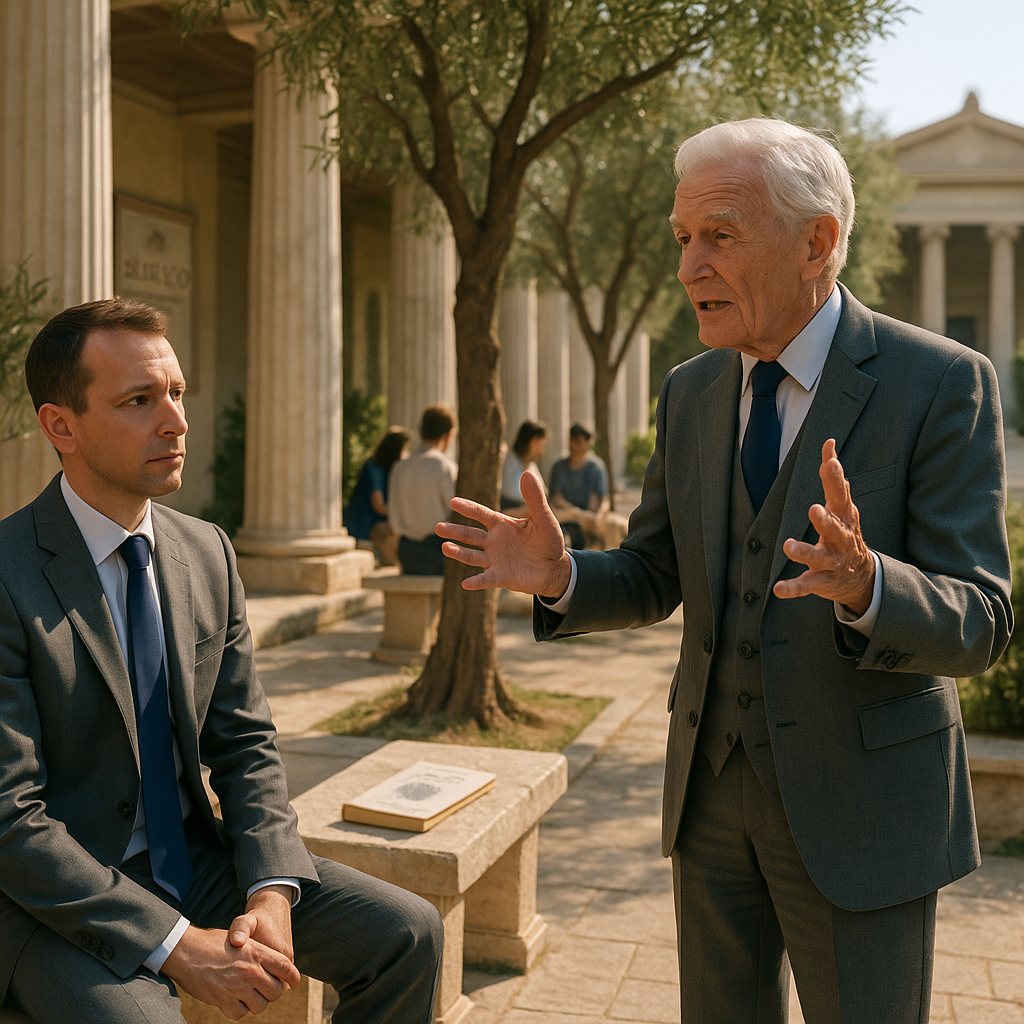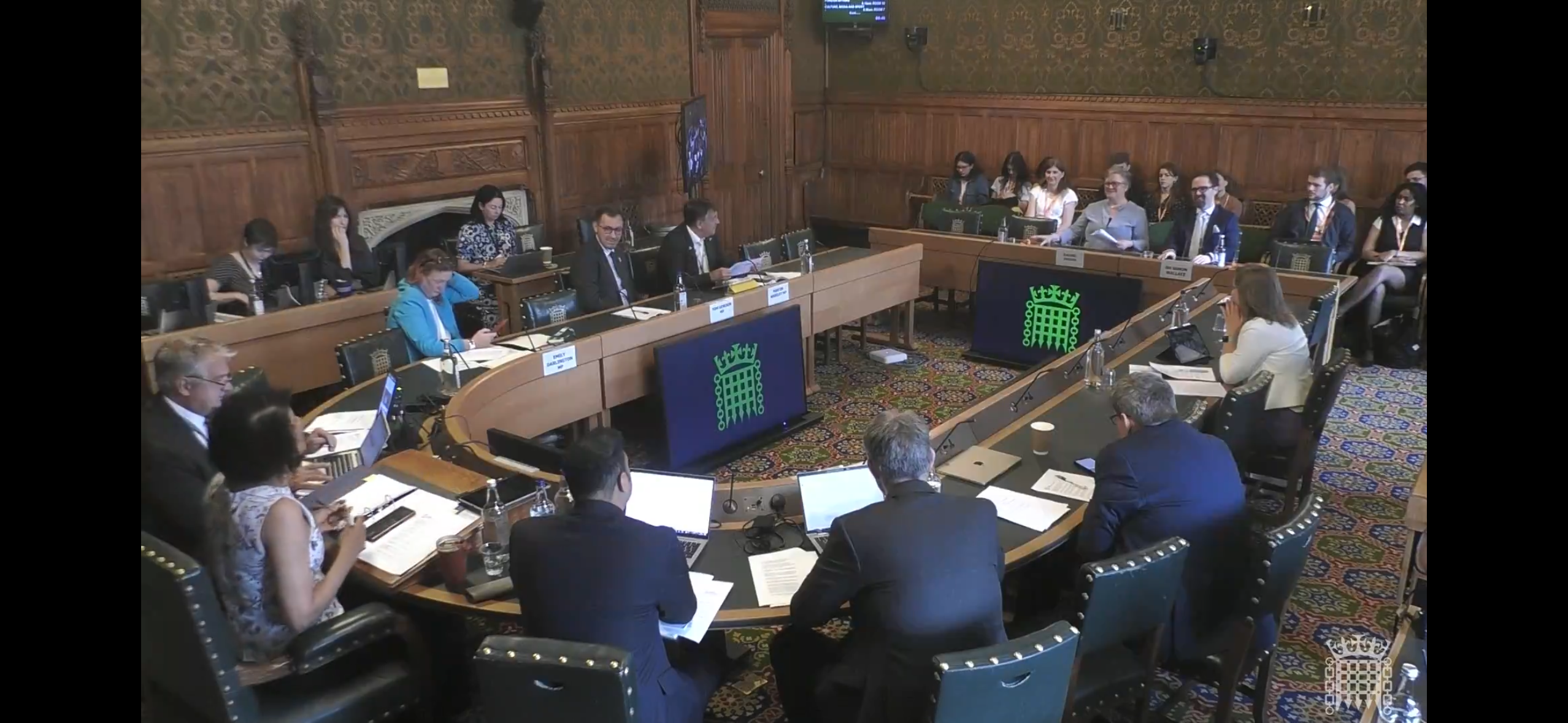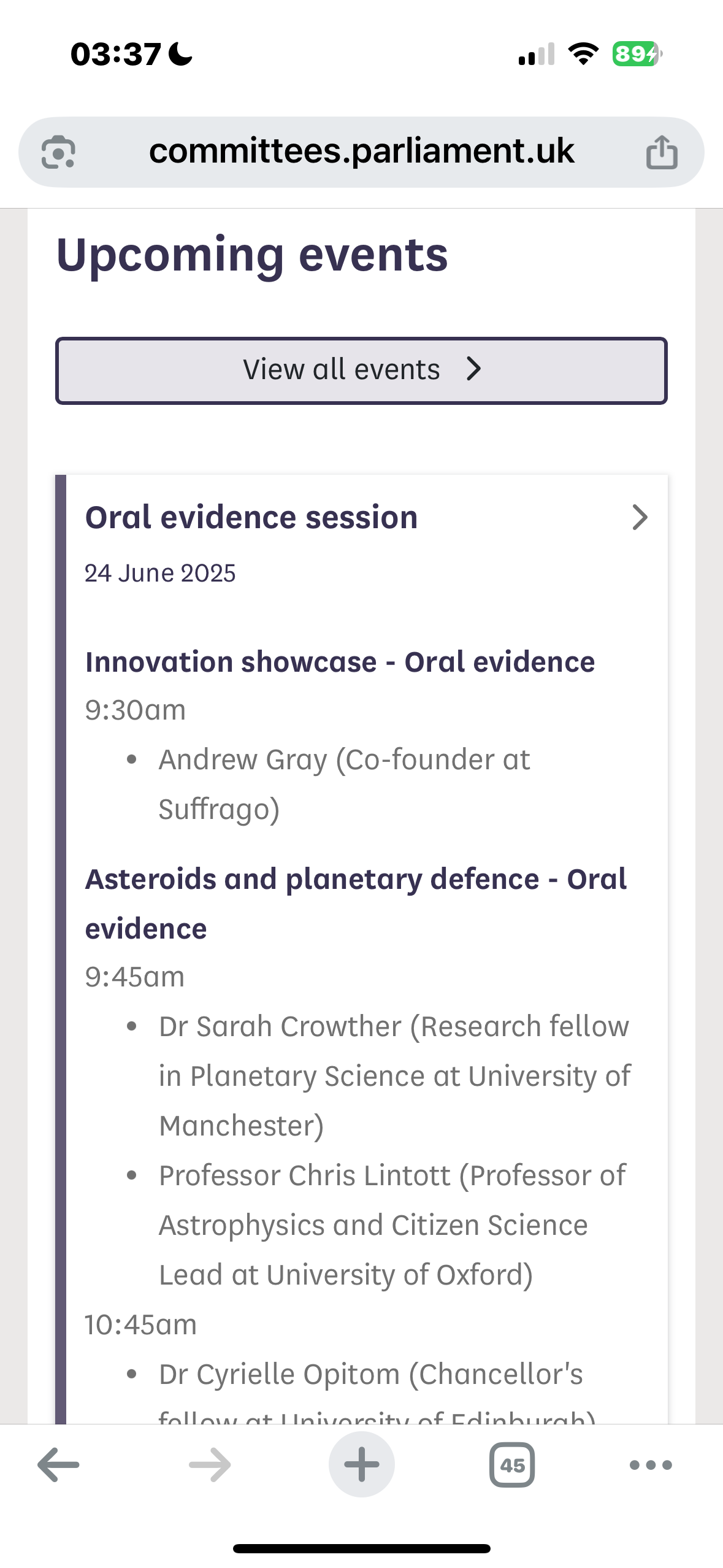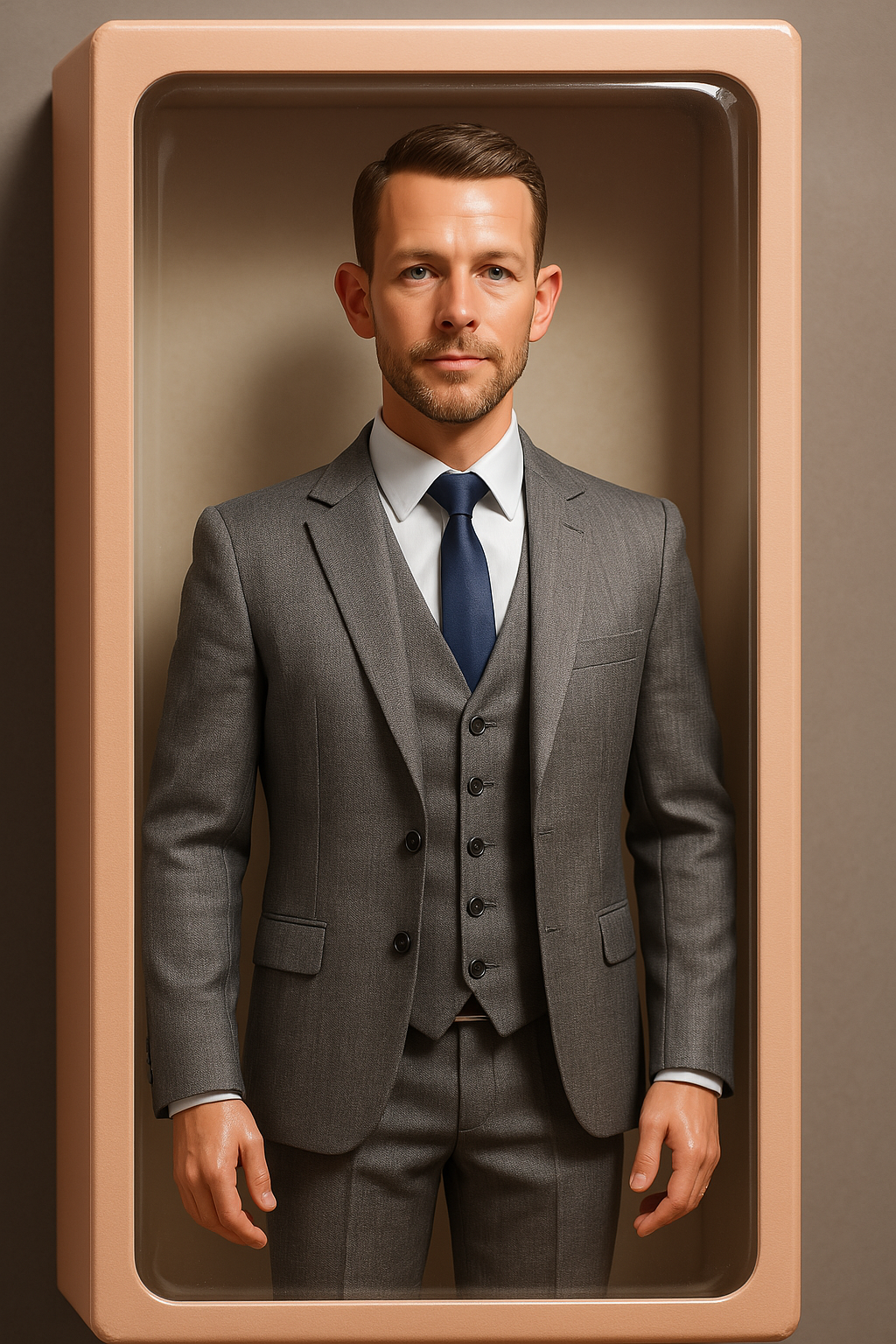Health Is Wealth (and Then Some)
Poor health has a way of sharpening the mind. Lying in bed - again - grounded by illness, strange thoughts emerge. Proust, Nietzsche, (Gray?) and others did their best [...]
Find out more about my consensus-based technology at Crowd Wisdom Project
Find out more about my consensus-based technology at Crowd Wisdom Project
Poor health has a way of sharpening the mind. Lying in bed - again - grounded by illness, strange thoughts emerge. Proust, Nietzsche, (Gray?) and others did their best [...]
Presenting Suffrago to the House of Commons Select Committee on Science, Technology and Innovation this Tuesday was meant to be the pinnacle of my personal and professional journey. Alas, life [...]
Suffrago work, health, chaos. That’s been my life lately. Zero complaints. This Sunday morning, at last, a moment to reflect — and blog. For many of the dozens of new [...]
In what is a UK-first, I’ve helped to launch 650 MP performance polls! What a jolly good idea, even if I do say so myself. https://www.suffrago.org/question?id=3cec8091d49e1e18f58a25b7f217dce8 The voting is all [...]
For much of this week, my blood pressure was so low that I couldn’t think. Making a sandwich was a physical challenge, but worse, I couldn’t even work out what [...]
Sitting here in the shade of a palm tree, near the sumptuous church and vicarage of the Anglican parish in Puerto De La Cruz, I can confidently tell you: heaven [...]
Knock, knock, knockin' on heaven's door Many years ago, I stood for the Labour Party in a council by-election in Bilton, Harrogate. I hated canvassing—the intrusion into someone’s privacy—but I [...]
Why isn’t the Government’s seriously sexy Seed Enterprise Investment Scheme (SEIS) better known throughout society, just as ISAs are? I only came across SEIS recently, and none of the professionals [...]
Hello friends, Today, I’m excited to introduce you to: Suffrago.org. This is my life’s work coming together, a project grounded in decades of involvement across the political spectrum and [...]
It’s 8:30am on Friday, 25 October 2024. I’m having an emotional moment, which I need to capture. In the bed to my left, here in Harrogate hospital where I’ve [...]

Read
This Article

Read
This Article

Read
This Article

Read
This Article
Copyright Andrew Gray of Cosensus Politics Ltd. All rights reserved. Terms & Conditions | Privacy Policy | Cookie Policy
Website by The Micro Agency.
